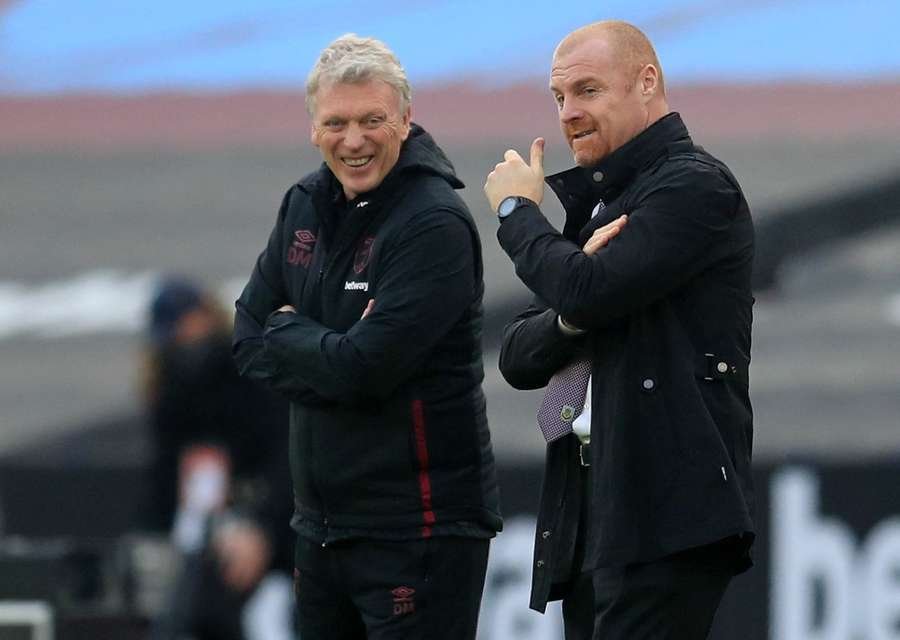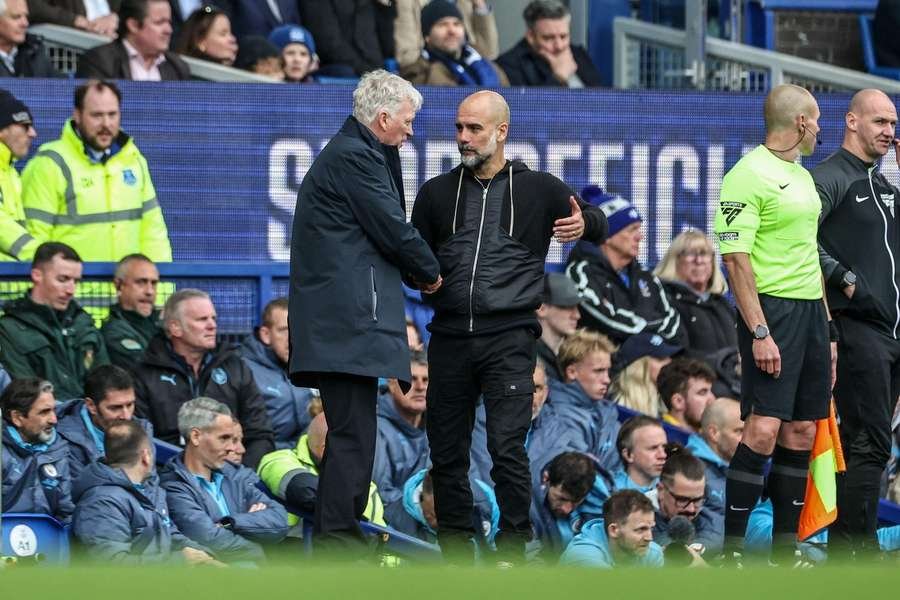It’s safe to say that David Moyes was not the most favoured option among Everton fans when he was appointed to replace Sean Dyche earlier in the season.
The Toffees had struggled to find any momentum under the previous Burnley manager, and Moyes’ last season record at West Ham painted a lacklustre picture.
Support from the fans in East London appeared to play a significant role in the decision to part ways with the Scot, culminating in a season finish where he managed 53 matches, securing 22 victories, 12 draws, and suffering 19 defeats.
Moyes deserves recognition for stepping into a floundering Everton team
Despite this setback, West Ham’s tally of 82 goals was the second-highest Moyes had achieved with any of his teams in the last decade, although conceding 90 goals marked a record low, suggesting his departure was justified.
Upon his return to Goodison Park for a second spell, Moyes inherited an Everton side that had only managed three wins from 19 Premier League games under Dyche in the current campaign, with eight draws (five of which were lacklustre 0-0 finishes) and eight losses.
With a mere 15 goals found in this timeframe and 25 conceded, Dyche’s win ratio stood at a dismal 15.8%. A change was clearly needed, regardless of his tenacity and resolve.

The judgement of Everton’s long-suffering supporters may have been swayed by Moyes’ last season at West Ham, conveniently overlooking the fact that he brought the Hammers their first major trophy in over 40 years (the UEFA Conference League) and secured European qualification for three consecutive seasons — a first in the club’s history.
Moyes made a solid start in his initial home match back at Goodison Park, guiding the team to a thrilling 3-2 win over Tottenham. He followed this with victories against Leicester, Brighton and Crystal Palace, as well as draws against Liverpool and Manchester United, both ending 2-2.
Remarkably, Moyes went unbeaten for nine games before narrowly losing to Liverpool. By that point, he had rekindled the confidence of the fans, with discussions shifting from relegation fears to aspirations of climbing the league table.
Moyes’ record at Everton this season is a world apart from Dyche’s
In fact, so far this season, Moyes’ record stands in stark contrast to that of Dyche.
Under Moyes, the Toffees have played 14 matches, securing five wins, six draws, and just three losses. They’ve netted 19 goals while conceding 15, leading to a win rate of 35.7%.
The quality of play, both individually and collectively, arguably serves as even greater encouragement than the tangible results themselves.

To his credit, Moyes has seemingly extracted that additional 10% from players who were already in the squad, despite having largely the same resources as his predecessor.
It’s also worth emphasising that Moyes has transformed the narrative around his managerial abilities, particularly considering Sir Alex Ferguson and Manchester United once deemed him fit to fill the legendary manager’s shoes.
Despite a challenging period at Old Trafford, along with unsatisfactory spells at Real Sociedad, Sunderland, and his initial time at West Ham, many tended to label Moyes as a relic of the past, disregarding the courage it takes to assume those roles in the first place.
The impossible task at Old Trafford
Especially considering that whoever succeeded Sir Alex Ferguson would have been facing an uphill battle from the outset.
While a David Moyes team may not embody the exhilarating attacking style of a Pep Guardiola-led Manchester City, he cultivates an organised, adaptable squad willing to give their all for each other — and that counts for something.

Interestingly, the perception of the 61-year-old often contrasts with the reality on the ground.
For instance, any claims of Moyes playing dull football can be countered by the statistic that in the last 10 years, he has managed 18 goalless draws across 360 matches — never exceeding three in a single season.
Furthermore, Everton’s net expenditure of £27.22 million over the past five years ranks them at the bottom of the English Premier League in terms of financial investment during this period, suggesting that Moyes faced limited resources upon his return to the club.
It’s premature to assess Moyes’ tenure at Everton
Consequently, the lingering frustrations among the local support may have influenced their views on Moyes’ appointment, perceiving it as a cost-cutting measure rather than a forward-looking decision — though this sentiment is not rooted in the manager’s capabilities.
Fortunately for the Scottish boss, he has swiftly demonstrated that, despite being the oldest manager in the Premier League, he remains more than capable of contending with the league’s most esteemed tacticians.
With just five matches left in the current season, Everton sits in 13th place; not fantastic, but a far cry from the dire situation they were in when Moyes took over.

Next season, following nearly a year in Everton’s new home at Bramley-Moore Dock, will be the appropriate time to evaluate Moyes’ tenure, and it would take a brave individual to bet against the Toffees becoming competitive again — just as they were during his earlier stint at the club.
It’s commonly said one should never return, but David Moyes has already proven otherwise.
Compiled by SportArena.com.au.
Fanpage: SportArena.com.au.
LiveScore – Live Sports Results & Odds.




